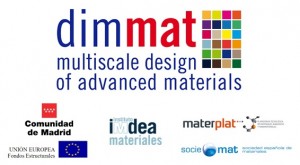![]()
Summer School on Advanced Processing of Metallic Materials
The last 28th and 29th of June IMDEA Materials Institute hosted the first Summer School on Advanced Processing of Metallic Materials. This event was organized under the auspices of the DIMMAT-Project for 2016 (dissemination and training programme).
This course was offered for undergraduates and graduates in sciences and engineering, and also for industry professionals in advanced materials. Lectures were carried out by distinguished scientists, technologists and industry practitioners participating in the DIMMAT consortium as well as in other technological centers and companies in Spain.
The Summer School was a unique opportunity for students, academics and industrialists to share their enthusiasm for science, knowledge and discovery. Throughout the two days the attendants came into contact with the main concepts underlying the latest advancements related to casting, forming, powder metallurgy and 3D printing of metals, as well as to processing methods aimed specifically for steels, nanocomposites and thin films.
Special emphasis was also placed in the description of high throughput processing techniques, such as the fabrication of 0D, 1D, and 2D libraries by arc melting, additive alloy melting, diffusion multiples, or powder metallurgy. These methods are gaining widespread interest as they would allow shortening the design cycles of metals, thus saving raw materials and severely reducing cost.
Furthermore, an interactive tour along IMDEA-Materials laboratories allowed participants to be directly involved in practical experiences such as the atomization of powders, the casting of ingots, as well as powder sintering and heat treatments with the Gleeble. The tour took visitors to the advance characterization and nanomechanical testing laboratories, where they could interact with experts on these areas.
At the end of the second day DIMMAT coordinators opened a panel for discussion and debate amongst SMEs, researchers and students. A topic that attracted great interest was the assessment of the prospects of additive manufacturing for the mass fabrication of metallic materials at an industrial level. It was concluded that this process, while allowing for the manufacturing of very complex geometries, has enormous limitations. In particular, it was pointed out that the 3D printers that are commercially available are optimized to work only using a very limited range of processing parameters and raw materials. Thus, much further fundamental work in areas such as, for example, the production of the initial powders, and the tuning of the processing parameters is needed before this methodology can gain further momentum.
The Summer School counted with the support of MATERPLAT and SOCIEMAT, with the coordination of DIMMAT-Project and IMDEA Materials Institute.
The presentations can be downloaded here
Forward training courses and events of DIMMAT-CM

